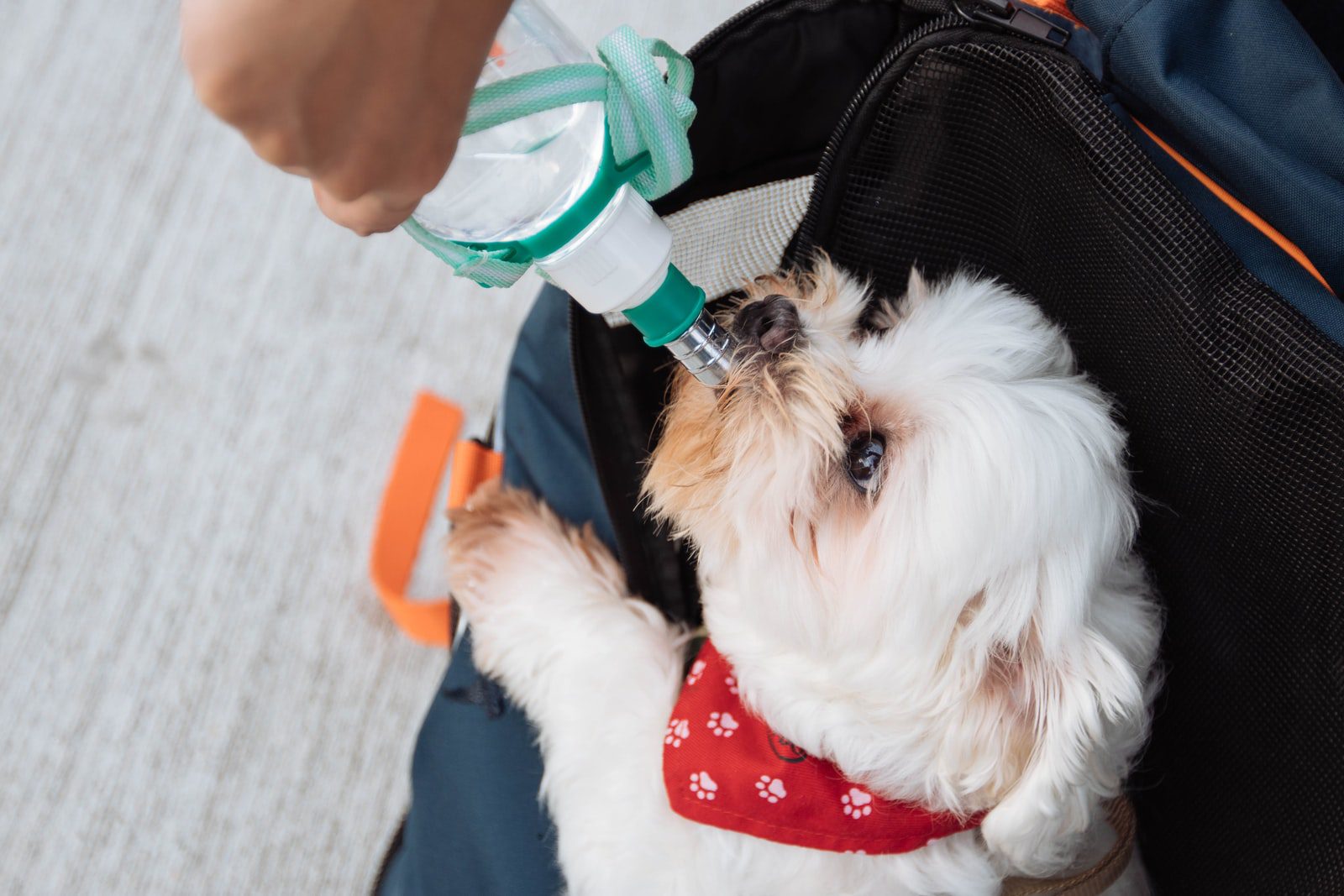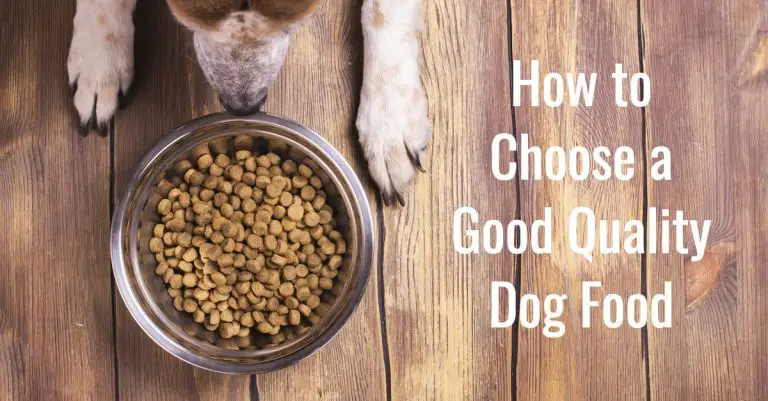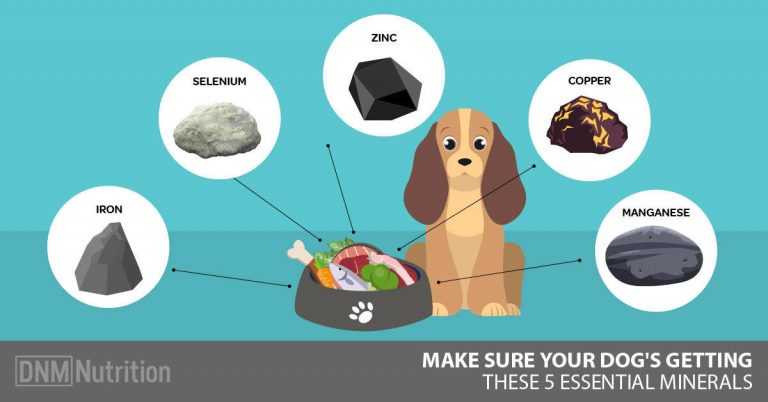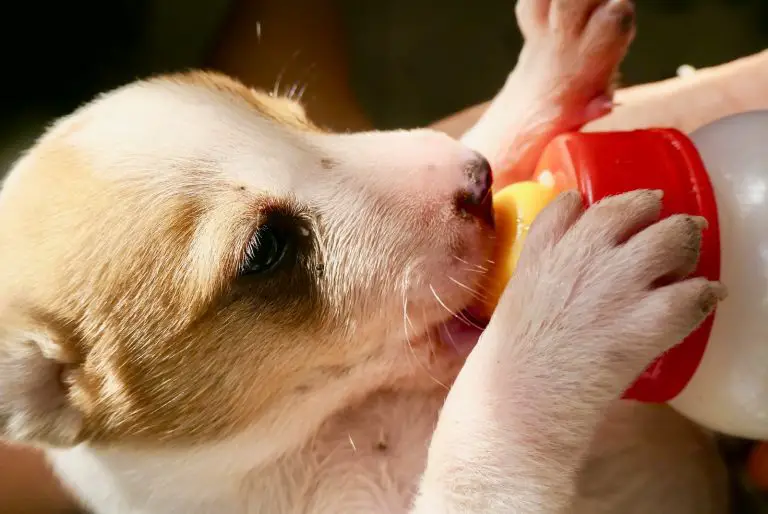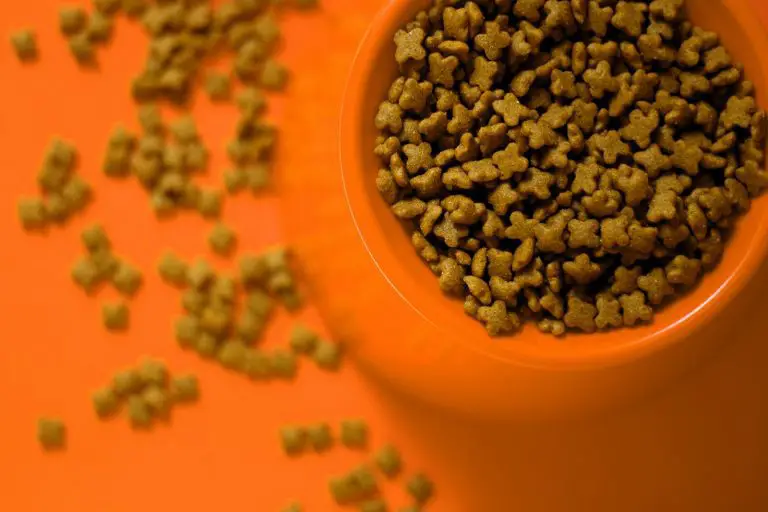On a hot summer day, you may be out running with your dog and drinking Gatorade, while your dog looks at curiously. That curious looks gets you wondering can you give a dog Gatorade.
Most pet owners start getting desperate when dog isn’t feeling it’s usual self, often resorting to unorthodox diets that could do more damage than good. Using Gatorade is as unusual as it gets, but it could work to combat dehydration. One of the most critical health issues for dogs is plummeting levels of hydration due to a fluid deficit.
Dogs, like all mammals, depend on water to maintain regular body function, inducing cushioning internal organs, lubricating joints, regulating body temperature, and aiding digestion. But when a few rounds of lapping bowl after bowl of water in rapid succession, most pet owners think of the next best option – is Gatorade going to do the trick? Let’s find this out in this post.
What is Gatorade?
Gatorade isn’t your usual energy drink. It consists of water and a host of essential minerals that include sodium, potassium, sugar, phosphate, and flavoring (some of which could be harmful). These ingredients are just as useful for dogs as they are for the human body. These minerals perform the following important function in your canine’s body:
- Regulating the body’s pH levels
- Transporting nutrients around the body
- Regulating muscle function
- Facilitating the nervous system
Anecdotal evidence suggests that a gulp or two of Gatorade may assist your canine companion in restoring its hydration levels. Furthermore, Gatorade is effectively formulated to resupply the body with electrolytes for smooth operation. Dehydration usually leads to lower electrolyte levels.
Watch this video of dog drinking Gatorade.
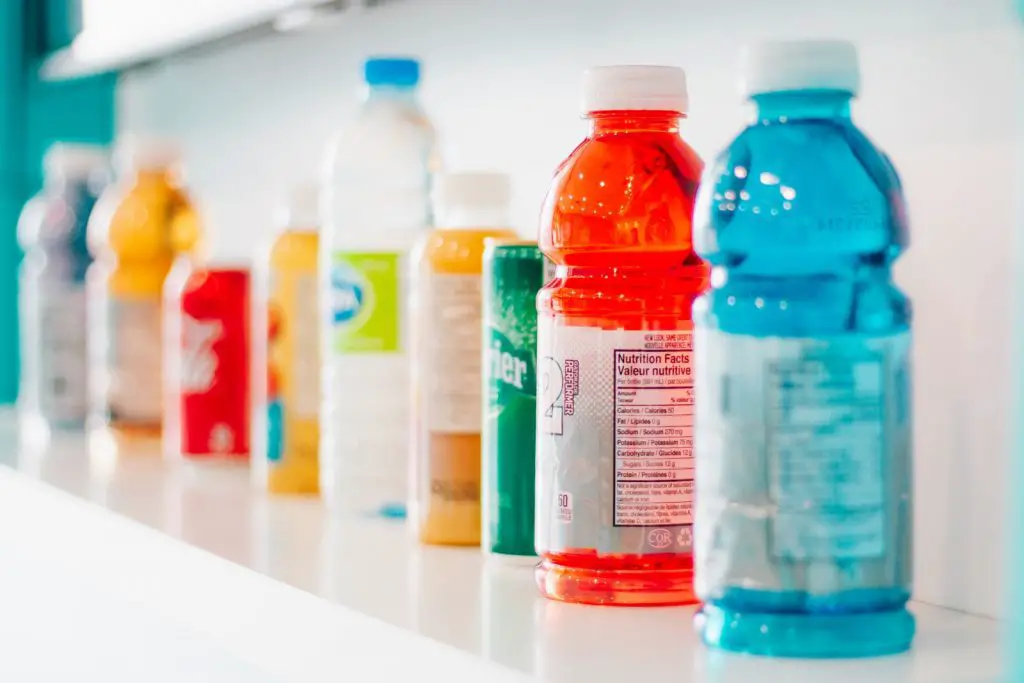
Why Your Dog Might Need to Drink Gatorade?
It is normal for dogs to rapidly gain and lose fluids throughout the day as they go about their daily routine. Typical causes of dehydration include panting, defecating, breathing, urinating, and evaporation through the skin, all of which result in loss of fluids. For the most part, a well-balanced diet can compensate for the resulting loss in fluid and electrolyte.
There are usually more reasons than one for why your pooch is feeling under the weather. If this Gatorade is not enough to do the trick, perhaps you are dealing with more severe symptoms that require a different strategy. Some of the most common reasons for dehydration include acute attacks of diarrhea, heatstroke, vomiting, and various illnesses, including cancer.
All of these can cause their dehydration levels to go below critical levels. In more serious cases of fluid loss, the severe shortage of water can even result in organ failure, which could lead to death. Nursing mothers, older dogs, and smaller dog breeds are all at a high risk of dehydration.
The most common symptoms of canine dehydration include:
- Loss of appetite
- Loss of skin elasticity
- Panting
- Lethargy and lower levels of energy
- Vomiting with or without diarrhea
- Sunken eyes
- Thick saliva
- Dry and sticky gums
- Dry nose
The loss of skin elasticity is among the earliest signs of dehydration. You can quickly check for it at home by pinching the skin over the dog’s shoulder blades. Mild dehydration will cause the skin to be slightly slow in return to its original position. In dogs with normal hydration levels, the skin will instantly spring back into place.
If at all possible, consult your dog’s vet for quick and reliable information. If your dog is dealing with a long term illness, Gatorade may provide some relief, but its effects won’t counter the effects of the illness. Only a vet can diagnose the more serious issues, so take your dog to a vet when possible.
Watch the video below on giving your dog Gatorade.
Is Gatorade Safe for Dogs to Drink?
The Gatorade formula will have the same effects on canines as it does on humans. The Gatorade will restore their electrolyte levels, hydration levels, and make them feel better if they’re suffering from diarrhea. Your canine companion may even acquire a taste for Gatorade over time. It is worth noting that Gatorade has unhealthy levels of sugar and sodium.
Gatorade is optimized for consumption in humans with larger and more robust organs. Because dogs are smaller than humans, their organs are also proportionally smaller than ours. They cannot process these ingredients as readily as the human body can, which could result in serious issues if used more than sparingly.
Making this worse is the fact that dogs don’t lose salt when they sweat, the vapors they lose due to panting primarily consists of water. While Gatorade does not contain vast amounts of sugar, if your dog is unable to process the excessive sugar content found in Gatorade, it will end up losing even more water.
When it comes to Gatorade, moderation is key if you want to stay safe. You wouldn’t give your child lots of Gatorade for consumption, why treat your furry friend differently. Apply the same rules of engagement as you would with your children.
How to Give Gatorade to Dogs?
Now that you know the answer to can you give a dog Gatorade, let us discuss the best way to give Gatorade to your dog.
The most efficient way to give Gatorade to your dog is by diluting it with water. The ideal mixture contains a mixture of water with Gatorade in a 50:50 ratio. This means filling the bottle halfway up with Gatorade and then filling the rest with water.
This is a safer way to introduce nutrients into their bodies and, at the same time, ensures that sugar and sodium doesn’t strain your dog’s organs. If you want your dog to consume Gatorade even slower, try freezing the diluted mixture in ice cubes and let it thaw out at room temperature.
You should not give your dog more than two glasses of Gatorade, and this certainly shouldn’t be done every other day. Remember, moderation is key. This should be done when your dog is feeling dehydrated and is unable to replenish their electrolyte levels using normal means. The advice applies to all sports drinks in general and not just Gatorade.
If you are concerned about the relatively high sugar content in Gatorade, try to find sugar-free alternatives with an infusion of electrolytes. These are much easier for your dog to handle.
Some of the Flavors of Gatorade You Should Try (And Avoid!)
Gatorade is sold in many flavors, and not all will be safe for your dog. As mentioned earlier, elevated levels of sugar will disrupt your dog’s relatively less robust digestive tract. Their organs are simply not designed to process huge amounts of carbohydrates and sugars. That being said, their digestive system is geared to handle other types of food with naturally occurring carbohydrates and sugars.
Some Gatorade flavors will upset your dog’s gastrointestinal tract. More notably, you should avoid Grape and Cool Blue.
Make it a point to ban both these from your dog’s diet list since these are hazardous to their health. Grape, in any form, is dangerous to your dog’s health because it can cause severe damage to their livers and slow down the healthy production of urine (anuria). Cool Blue, on the other hand, has a higher dose of artificial sweeteners added to it. Try Yellow and Orange Gatorade instead.
When to Give Gatorade to Dogs?
Low electrolytes and dehydration can quickly become a severe issue in dogs and require urgent intervention from pet owners. There are several instances where a few sips of Gatorade could come to your dog’s rescue; these include:
A little bit of Gatorade could do wonders for your dog when it is feeling sick.
If your dog is not in the mood to eat solid foods after surgery and if they are stressed out, you can find a way to keep them hydrated by administering Gatorade. A good amount of Gatorade will help your dog heal much quicker.
Electrolytes support hydration levels during queening and whelming as well as any other time of peak physical activity. Gatorade can provide an alternative source of quick energy to recover depleted energy levels.

Is There Anything in Gatorade That’s Bad for Health of Dogs?
The Gatorade formula consists of fruits, sweeteners, and artificial preservatives. Make sure to review the nutrition list of each flavor before administering it to your dog. A typical bottle consists of salt, sodium citrate, dextrose, monopotassium phosphate, glycerol, ester of rosin, and other types of flavorings.
Regular intake of these ingredients will lead to higher toxicity levels in your dog’s body and create long term health issues like pancreatitis. In worse case scenarios, it may even lead to an increase in blood sugar levels. As long as you remember not to administer Gatorade in excess, your dog should be good to go.
What Are the Advantages of Drinking Gatorade?
Here are some of the benefits or advantages of drinking Gatorade for your dog.
Gatorade addresses the root cause of dehydration in most cases: it targets the loss of electrolytes like potassium and sodium.
Every 8 ounces of Gatorade contains 160 mg of sodium and 45 mg of potassium. Although high amounts of sodium are unhealthy, the body needs the mineral for proper organ functioning and fluid balance.
Potassium is required to regulate the heart’s electrical activity and is readily available from bananas, orange, fish, and prune. Both these essential electrolytes get discarded when dogs pant.
Your dog’s body can process Gatorade faster than regular food, and in most cases, you may notice an immediate improvement. The slight confusion and dizziness that is often seen during mild dehydration begins to subside within minutes of drinking Gatorade. Once your dog has fully recovered, they can proceed to have a real meal later.
It is convenient to give your dog Gatorade that can regulate their hydration levels instead of having to prepare a meal from scratch. When you’re hard-pressed for time and need an urgent solution, a single glass of Gatorade is a suitable substitute for meals for dehydrated dogs. Moreover, Gatorade comes in small and big portions, all of which are easy to transport and store.
What Are the Disadvantages of Drinking Gatorade?
Simply put, Gatorade is a brand that is ultimately designed for human consumption. It comes with various additives and fillers that a dog’s body simply does not need. A single glass of Gatorade will contain a fairly high amount of low-nutrient elements that may enhance the flavor.
When your pooch drinks Gatorade, they consume not just the water content, but all of the elements found in Gatorade, some of which will be discussed in detail below.
Gatorade signature flavor comes from a mixture of high fructose corn syrup and sucrose syrup. This combo acts like a preservative, high-calorie filler, and sweetener with no nutritional value. Many cities such as New York are regulating the availability of Gatorade and similar sodas because of their high fructose corn syrup content. Adding Gatorade into a dog’s everyday diet will contribute to weight gain, morbid obesity, and in worse case scenarios, even diabetes.
Although Gatorade is marketed as a health drink, it primarily banks on its flavors such as fruit punch and orange, none of which contain any real fruit juice. The sodium citrate adds to the flavor while the citric acid acts as a preservative – it’s not healthy. It is not advisable to introduce these ingredients to your dog’s body if they do not benefit them.
Gatorade is going to cost you a nice chunk of change. The price of Gatorade varies from state to state and is based on the product size. Gatorade is a commercial product first and health product second. So approach carefully.
Try a Natural Diet for Your Dog Instead
According to most nutritional experts, a dog’s diet must include a combination of proteins, carbohydrates, fatty acids, minerals, vitamins, and of course, water. The carbohydrates found in dog food are derived from vegetables instead of pure sugar, which is normally the case in Gatorade.
According to experts, giving plain fresh water should be enough to keep your dog properly hydrated. Please keep in mind that your dog’s primary source of hydration should come from water. Gatorade should be used as a last resort.
Can You Make Your Electrolyte Drink at Home for Your Dog?
If you’re set on preparing home-made dehydration treatments for your dog, try using diluted chicken broth. This solution is so effective that it is used on working dogs such as search and rescue dogs, hunting dogs, and lice dogs that spend long hours in extreme heat and cold and usually suffer from dehydration.
Preparing chicken broth for dogs requires a little patience, though. Simmer the chicken along with its bones for 1 hour. Now remove the chicken for another recipe and store the remaining liquid in a refrigerator. Now remove the layer of fat on the liquid and pour it onto ice cube trays. Keep the frozen cubes in an airtight container in the freezer.
Add a few of these ice cubes to your dog’s water bowl and notice the change in their mood as they can’t get enough of chicken! Your pup will probably jump at the chance of drinking chicken-flavored liquid and lick the bowl clean. And if you want to go the extra mile, you can make improvements to the broth’s flavor by adding celery, carrots, and other vegetables as you cook the broth.
Word of caution, though, you will have to clean the bowl regularly and change the liquid before refilling because it can get infectious relatively quickly. Switch things up now and then with Gatorade to keep your dog’s diet interesting. Feed them a mix of Gatorade along with chicken broth to supplement their hydration levels truly.
Gatorade Will Not Help Underlying Health Issues
Gatorade is not a magic bullet that will fix all your dog’s dehydration problems. Your dog can be suffering from more serious ailments that warrant a visit to a vet for a more accurate diagnosis. The signs of disease are not always obvious, and your vet may ask you to perform preventive care testing that includes;
Tests to identify if your dog has infectious diseases and heart worm include:
- A blood count to rule out blood-related conditions
- Urine tests to check for urinary tract infection and other diseases
- Analyzing the stool for blood (which is a sign of serious ailments)
- Observing the vomit to see what your dog is thrown up
- Monitoring your dog’ weight to see if it is normal
Common diseases such as cancer, diabetes, Kennel cough, parvovirus, and rabies will not respond well to Gatorade and may require actual surgery. If your dog stays sick for too long, it’s time to visit the vet for a thorough diagnosis.
It’s time to take your dog to the vet if you notice the following:
- Your dog does not cease to vomit
- Your dog checks out the water bowl but is hesitant to drink for it
- Your dog drinks excessive amounts of water (usually to cope with nausea)
- Your dog has become too sluggish
Watch the video below on how to restore nutrients in dog’s system.
Conclusion
If you want an answer to can you give a dog Gatorade, then yes, you can give Gatorade to your dog so long you stay reasonably moderate. Your goal should be to switch to alternative, more natural sources of hydration instead of keeping your dog happy.

